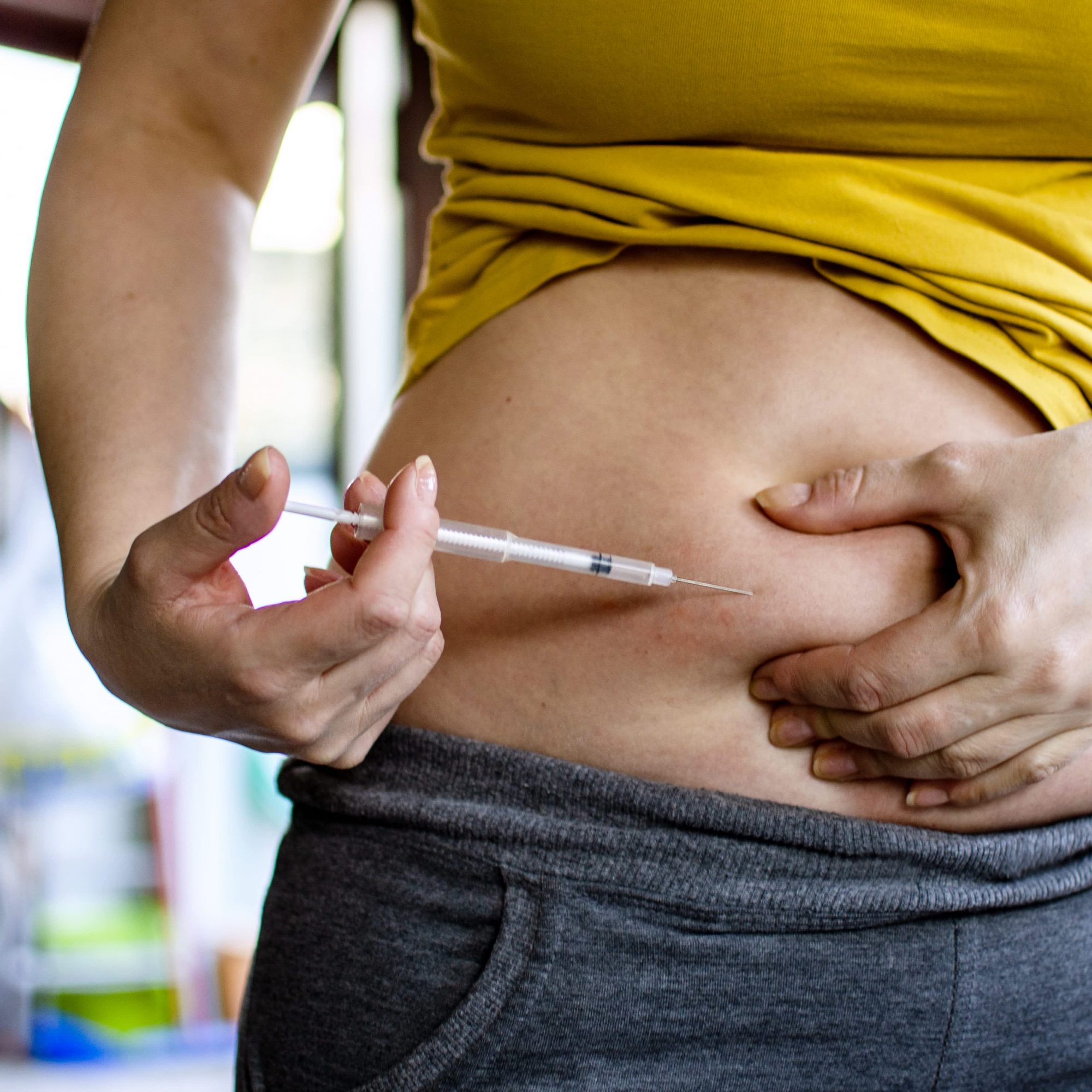
- POPSUGAR Australia
- Living
- IVF Injections Can Change Your Appetite – Experts Explain Why
IVF Injections Can Change Your Appetite – Experts Explain Why

Editor’s Note: We at POPSUGAR recognise that people of many genders and identities have vaginas and uteruses and experience pregnancy, not just those who are women. For this particular story, we interviewed experts who generally referred to people with vaginas and uteruses who experience pregnancy as women.
Undergoing in-vitro fertilisation (IVF) can be an exciting, scary time in your journey to parenthood, but one thing you may not have been expecting? Feeling super hungry after your injections! Many people already know what it’s like to feel hungrier at different points in their menstrual cycle – as well as bloating, weird digestion changes, acne, libido changes, and so much more – but trying to conceive, especially through IVF, brings its own set of interesting challenges. POPSUGAR spoke to doctors and fertility specialists to figure out why IVF injections can make some people hungry and what you can do about it.
Can IVF Make Me Hungrier Then Normal?
Your body’s hormone fluctuations after IVF injections could in fact cause you to feel hungrier, said Lauren Sundheimer, MD, MS, FACOG, of Newport Fertility Center, a CCRM Orange County Clinic. “IVF uses injectable hormone medications to manipulate the body to help grow eggs in a woman’s ovaries for fertilization in the IVF lab,” Dr. Sundheimer told POPSUGAR. “These mediations change the body’s normal hormonal balance. It is an effect that we want to get to get the response that we want, but it also disrupts the normal balance of hormones. This can include feedback that the brain receives for hunger, so some women may have an increased desire to eat.”
Hormones might not be the only thing making you hungrier – the IVF process can be very emotional, and that stress and anxiety could be driving you to eat more, too. This could also be why you’re eating more junk food, said Tarun Jain, MD, reproductive endocrinology and fertility specialist at Northwestern Medicine – it’s a common comfort food during stressful or anxious times.
So whether it’s from hormone changes or anxiety, it is very normal to feel hungrier after IVF.
How Long Does the Increased Hunger After IVF Last?
This increase in hunger should only last a couple weeks. In fact, as you get closer to the egg retrieval, it’s common to experience a decline in appetite due to rising estrogen levels and the full and bloating sensations caused by growing multiple eggs, said Rashmi Kudesia, MD, triple board certified in reproductive endocrinology and lifestyle medicine at CCRM Fertility Houston. These feelings of hunger and then loss of appetite shouldn’t last too long. “These symptoms are relatively short-lived, if you experience them at all,” Dr. Kudesia told POPSUGAR. “If no fresh embryo transfer is planned or if the result is negative, a period will follow one to two weeks after egg retrieval, and your hormones will be back to baseline by then. Hunger cravings should then be back to normal.”
What Can I Do to Ease My IVF Hunger in a Healthy Way?
If you’re truly hungry (and not just anxious), opt for protein-rich foods (like nuts, cheeses, or fruits) that will keep you fuller longer, said Nicole Avena, PhD, assistant professor at Mount Sinai Medical School, visiting professor of health psychology at Princeton University. Remember that a healthy diet is an important part of IVF, as dietary quality could potentially impact your outcomes, Dr. Kudesia said. She recommends eating a Mediterranean-style diet that emphasizes fresh fruits and vegetables; whole grains rather than refined white flour; limited red meat; increased plants; lean poultry and fish; inclusion of healthy fats; and minimal packaged, processed, and fast food, which can “enhance natural fertility and outcomes of infertility treatment.”
It’s also easy to misinterpret thirst as hunger – and IVF can be a dehydrating process – so be sure to drink plenty of water, too. “As you plan your fertility journey, cultivating a mindful approach to eating healthfully is one way to make sure you optimise your chances of success, feel better, and improve your general health all in one,” Dr. Kudesia said. “This choice also sets the stage for a healthy intrauterine environment, which will impact the health of your little one down the road.”
No matter if you feel extra hungry, not hungry at all, or some combination of the two, you should always consult your doctor about any concerns you may have or advice you want as you are trying to conceive.


